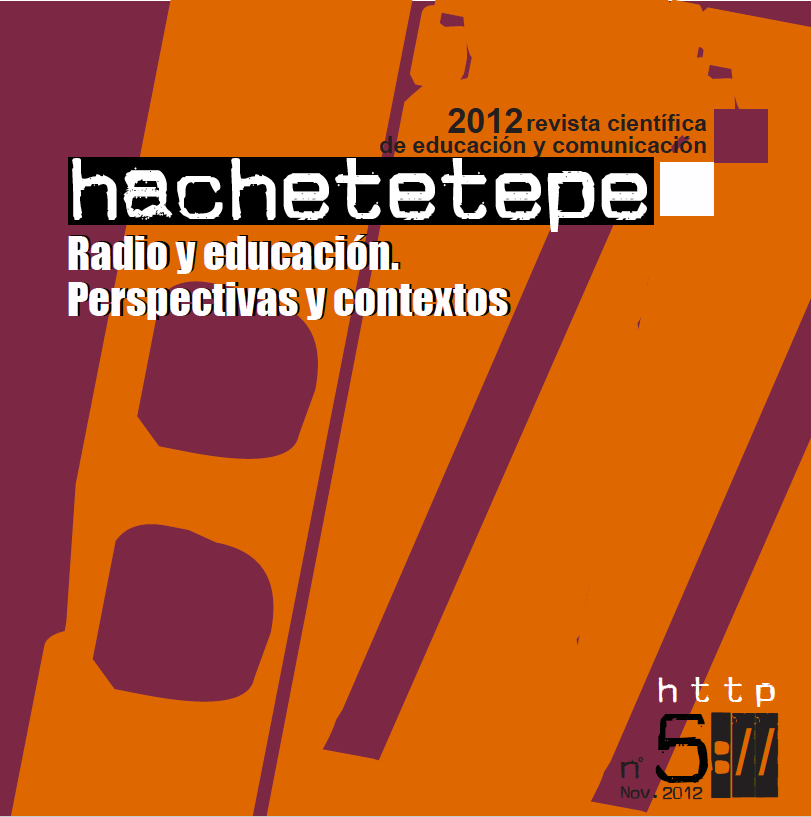Radio as a Doctrinal Educative Element During the Estado Novo Brasileiro (1937-1945)

Info
Abstract
For the Estado Novo brasileño dictatorship, under the government of Getúlio Vargas, radio was a fundamental element for the doctrinal education of the population. This article presents some of the strategies used by the national government and the regional government of the State of Pernambuco for these ends. In this light, we shall examine the images and metaphors used to elaborate an authoritarian truth. Within this political, ideological, and educative embroilment, the radio (Rádio Clube de Pernambuco) played a fundamental role in distracting public attention during the years of political control during the development of this media in a country of continental dimensions.
Keywords
Downloads
How to Cite
License

This work is licensed under a Creative Commons Attribution-NonCommercial-NoDerivatives 4.0 International License.
Those authors who have published with this journal, accept the following terms:
- They will retain their copyright and guarantee the journal the right to first publication of their work, which will simultaneously be subject to the Creative Commons Attribution License . They may be copied, used, disseminated, transmitted and publicly displayed, provided that the authorship, url, and magazine are cited, and are not used for commercial purposes. No derivative works are allowed.
- They may adopt other non-exclusive license agreements for the distribution of the published version of the work (e.g., deposit it in an institutional telematic archive or publish it in a monographic volume) provided that the initial publication in this journal is indicated.
- Disseminate your work through the Internet (e.g., in institutional telematic archives or on your website) once the manuscript is accepted, which may lead to interesting exchanges and increased citations of the published work. (See The effect of open access).
Hachetetepé. Scientific journal of education and communication does not charge a fee for the submission of manuscripts or for the publication of its articles.
References
Alcides, J. (1997). PRA-8: O Rádio no Brasil. Brasília: Fatorama.
Augusto, S. (1993). Este mundo é um pandeiro: a chanchada de Getúlio a JK. São Paulo: Companhia das Letras.
Câmara, R. (1998). Fragmentos da História do Rádio Clube de Pernambuco. Recife: CEPE.
Capelato, M.H. (1998). Multidões em cena – propaganda política no varguismo e no peronismo. Campinas: Papirus.
Dutra, El. (1997). O Ardil totalitário: imaginário político no Brasil dos anos 30. Belo Horizonte y Rio de Janeiro: UFMG y UFRJ.
Garcia, N. (1994). O que é propaganda ideológica. São Paulo: Brasiliense.
Lima Filho, A. (1976). China Gordo: Agamenon Magalhães e sua época. Recife: Universitária.
Montenegro, A. (1992). História oral e memória: a cultura popular revisitada. São Paulo: Contexto.
Pereira, N. (1972). Agamenon Magalhães. Uma evocação pessoal. Recife: Taperoá.
Severiano, J. y Mello, Z. (2002). A Canção no Tempo – 85 anos de músicas brasileiras. São Paulo: Editora 34.
Tinhorão, J. R. (1998). História social da música popular brasileira. São Paulo: Ed. 34.

